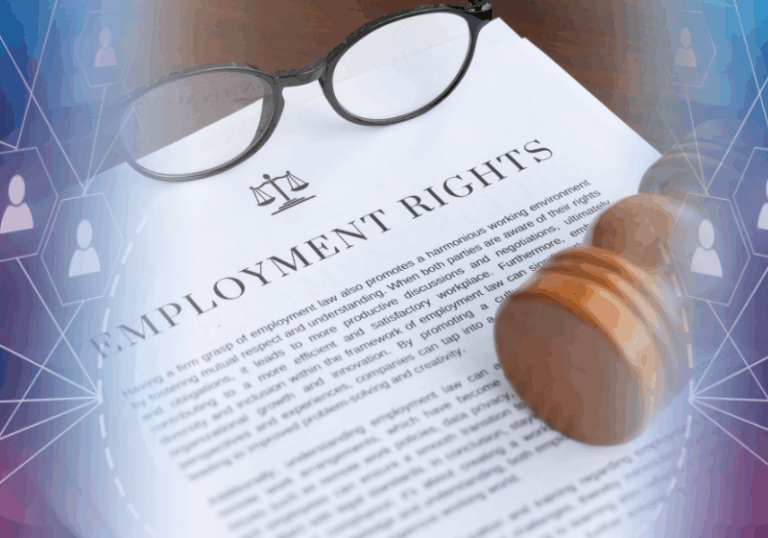The Real Cost of Getting Recruitment Wrong

As business owners, we all understand the importance of hiring the right people. A strong hire can drive your business forward, contribute positively to your culture, and even spark innovation. But what happens when recruitment goes wrong? Speaking from experience, we’ve got it wrong many times and learned some tough lessons along the way. However, as our business has grown, we’ve refined our approach and, more recently, absolutely nailed it with the right people coming on board. It makes all the difference!
At HR:4UK, we often support employers who are dealing with the fallout of a bad hire, sometimes months down the line, after significant time, money and energy have already been invested. While most people think of the cost purely in financial terms, the real impact runs much deeper.
For this month’s Ask the Expert, I spoke to one of our experienced HR Advisors Julie Spence to uncover the hidden and not-so-hidden costs of getting recruitment wrong, and what steps employers can take to avoid those pitfalls.
We often hear figures thrown around about the cost of a bad hire — but what does that actually include?
Julie: You’re right, the cost of getting it wrong can be eye-watering! Direct costs include advertising the vacancy, recruitment agency fees, interview time, onboarding, training, and of course, the salary you’re paying someone who’s not performing. However, it doesn’t stop there; the real damage lies in the indirect costs: lost productivity, disruption to the team, management time dealing with performance issues and the knock-on effect on morale, not to mention the cost of having to go through the whole recruitment process all over again.
Let’s have a look at this topic.
Can poor hiring decisions impact a business’s reputation?
Julie: Absolutely. If the wrong hire is in a customer-facing role or a leadership position, the impact can be significant. Poor service, unprofessional conduct or inconsistency in delivery can harm customer trust and in today’s digital age, it doesn’t take long for bad experiences to be shared publicly. Internally, staff may question management judgment and that can affect confidence and retention.
Are there particular roles or sectors where recruitment mistakes are more damaging?
Julie: Yes. Roles with a high level of responsibility, autonomy, or visibility eg team leaders, sales people or client-facing roles can be especially risky. Likewise, in sectors with tight margins or specialist skillsets, such as hospitality, care, or professional services, a poor hire can have an immediate operational impact. For SMEs, even one bad hire can be disproportionately disruptive compared to larger businesses.
What are the most common mistakes employers make when hiring?
Julie: Some of the most common mistakes include not taking enough time to define the role, relying too much on instinct rather than structured assessment, asking closed questions instead of open questions, failing to check references, not checking right to work documentation or skipping due diligence. There’s also a tendency to overlook red flags such as frequent job changes or vague answers because the employer is desperate to fill the role quickly. Another big one is hiring purely for technical skills while ignoring behavioural or cultural fit.
How important is cultural fit when recruiting?
Julie: It’s critical. Someone can tick every box on paper in terms of qualifications and experience, but if they don’t align with your company values or working style, it won’t work long term. A poor cultural fit can cause friction, disrupt team dynamics and lead to disengagement. On the other hand, someone with slightly less experience but the right attitude can often thrive with the right support.
What role does onboarding play in recruitment success?
Julie: A huge one — and it’s often underestimated. Even the best candidate will struggle if they’re not given a proper induction, clear expectations, and support in the early weeks. Good onboarding sets the tone, builds engagement and helps new hires become productive faster. Poor onboarding, however, can lead to confusion, low morale, and early resignations, essentially turning a good hire into a bad one.
What would you say to business owners who say they “don’t have time” for lengthy recruitment processes?
Julie: I’d say: you don’t have time not to. Rushing recruitment to ‘fill the gap’ often leads to a costly cycle of repeat hiring, disruption and underperformance. A more thorough, structured approach at the start saves you from much bigger headaches down the line. That includes everything from defining the role properly, shortlisting carefully, using competency-based interviews questions and carrying out reference checks.
Is there anything employers can do during probation to spot warning signs early?
Julie: Yes — probation periods are a crucial safety net. Use them wisely, don’t wait until the end to check in. Set clear objectives and hold regular reviews. Look out for patterns like poor punctuality, reluctance to seek feedback, low engagement, or failure to meet agreed milestones. If you have concerns, act early. With the right support, some issues can be addressed but in other cases, it may be best to part ways before long-term damage is done.
Final thoughts — how can employers reduce the risk of a bad hire?
Julie: It starts with clarity and structure. Be really clear about the role, the skills required and the kind of person who will thrive in your team — not just on paper, but in terms of values and behaviours too. Use consistent, fair and robust selection methods. Involve others in the process to get different perspectives and don’t be afraid to ask probing questions or dig deeper into someone’s track record.
Take your time! It can feel like you need to move fast or you’ll lose out, but rushing increases the risk of costly mistakes.
Once they do join, make sure you’ve got a strong onboarding plan in place and provide regular feedback from the start. If you’re unsure at any stage, reach out for support — whether that’s help crafting interview questions, sense-checking decisions, or managing someone through their probation.
Recruitment is an investment and when done well, it can make a big positive difference.
Conclusion
Recruitment may not always feel like a priority, especially in busy periods but as we’ve explored, getting it wrong can be incredibly costly. If you’re hiring, take the time to do it properly and don’t be afraid to ask for support.
Our team is here to help every step of the way, from crafting job specs to managing onboarding. It’s all about helping you build a stronger, more productive team – the right way.
Julie Spence
Julie is one of our full-time HR advisors with 30+ years of HR experience. She’s always keen to meet clients and really enjoys the personal touch.




